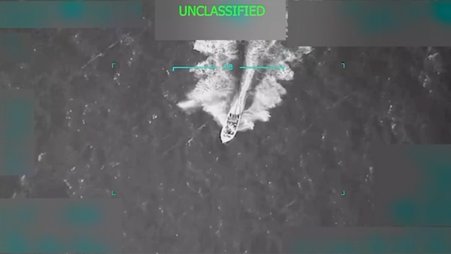Boat strike death toll climbs, legal justification still hidden


AI-generated image
The U.S. classifies far too many secrets, obstructing democracy.
Excessive government secrecy takes many forms, from agencies needlessly claiming documents are classified to ignoring information requests and destroying records — even when the documents show government fraud or illegal conduct. This hinders a free press, effective oversight, and the public’s ability to self govern.
We need to fight for systemic improvements, and we need the press to vigorously question the government every time it says something is classified.
Demand transparency around lethal targeting of alleged drug boats.
The public deserves to scrutinize the legal rationale behind the deadly attacks on alleged drug boats, but the administration is keeping the Department of Justice memo secret. Congress can change that — but it needs to hear from you to act.

Congress gifts judges unprecedented and unconstitutional powers.

Agencies misuse exemptions to cause delay and expense.

In the week since Politico dropped its blockbuster reporting on a draft Supreme Court decision that would overturn Roe v. Wade, the floodgates of leaks have opened. That’s a good thing.

Lawmakers called for modernization and an answer to a “basic question about how FOIA is operating in the context of new technology.”

The Supreme Court upheld and potentially expanded its pernicious “state secrets” privilege in two opinions late last week relating to expansive government surveillance and anti-terrorism programs.

The Nixon admin tried to prosecute the New York Times under the same statute the Justice Department is going after Julian Assange today.

The CIA is operating a mass surveillance program affecting Americans entirely in secret.

Even the Director of National Intelligence admits the U.S. secrecy system is horribly broken.

Stop us if you've heard this one before: the NSA failed to follow procedural and policy requirements surrounding the use of surveillance data collected on U.S. persons, according to a new report from the group's Office of the Inspector General.

The fight to free PACER, the federally managed database of public court records that has sat behind a paywall since its inception, has stretched on for more than a decade now. These efforts may finally pay off in 2022 with a bill poised for the Senate floor that achieves many of the aims of the "free PACER" movement.
Something went wrong and your email updates subscription could not be processed. Please visit our signup page and try again.
Thank you for asking Congress to read the boat strike memo into the Congressional Record.
Share this message on social media: The public deserves to scrutinize the legal rationale behind the deadly attacks on alleged drug boats, but the administration is keeping the memo secret.
Congress can change that today.
Use our action center tool to tell Congress to read the memo into the Congressional Record.